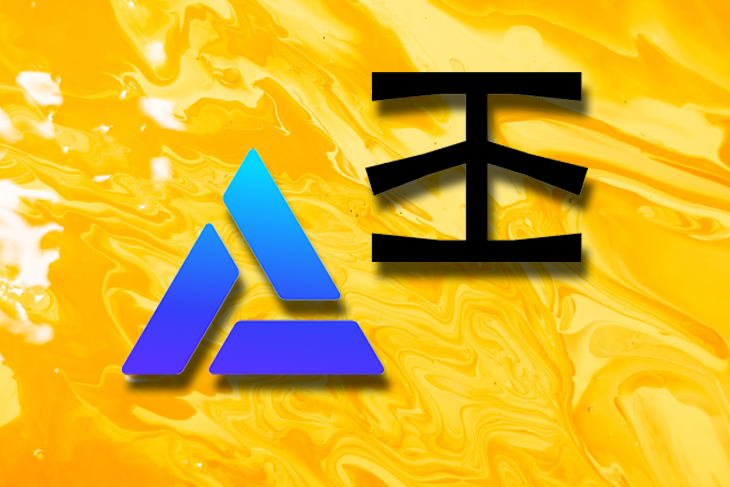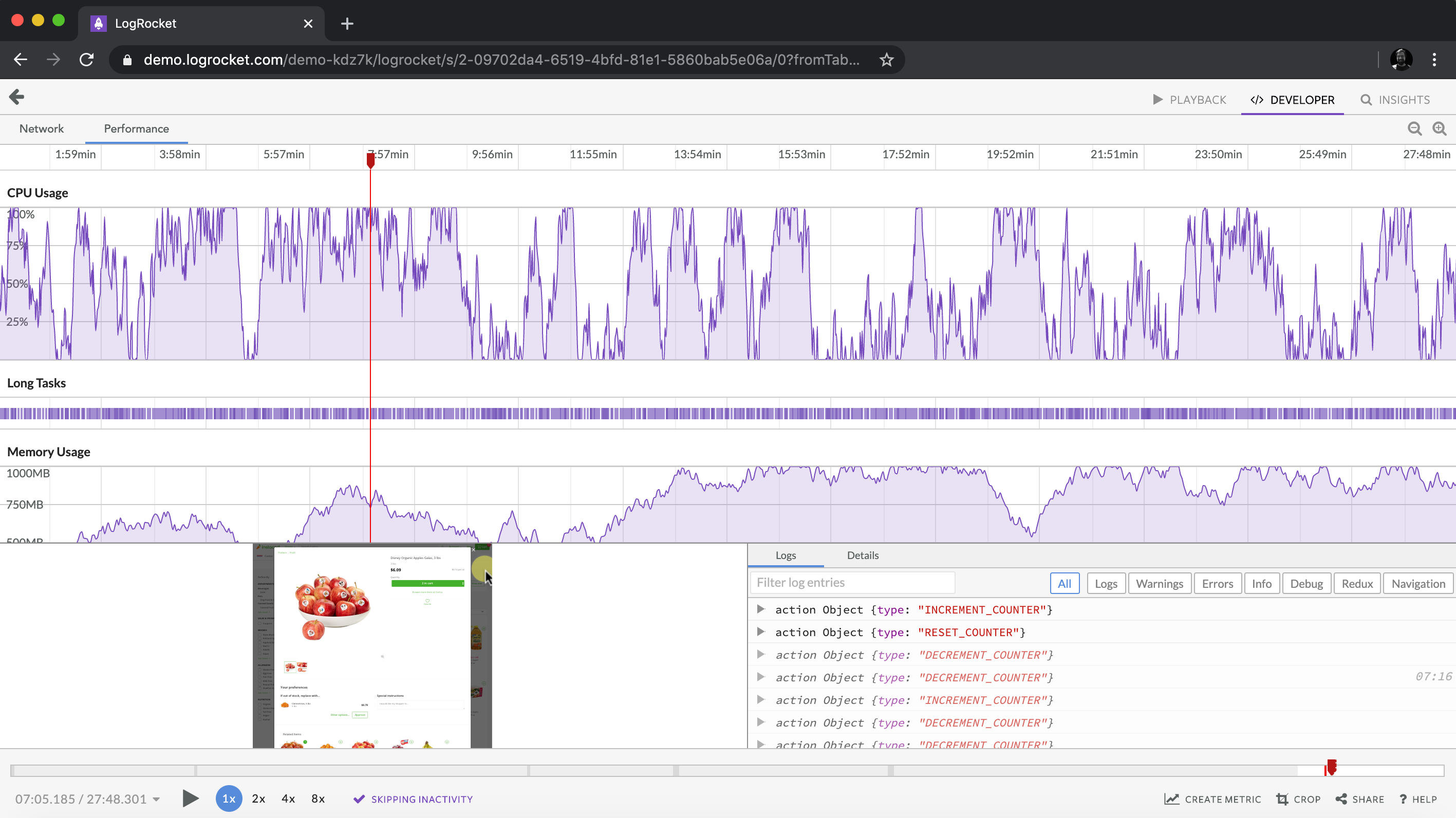
Naturally, hosting smart contracts requires you to set up a node of the blockchain on which you want to host them, but this process isn’t only complicated for people who are just getting started on their Web3 journeys; it can also be time-consuming and requires a lot of processing power to pull off.

This is what platforms like Infura and Alchemy aim to solve. In essence, they are node providers; i.e., they provide remote access to blockchain services so you don’t have to run your own node.
In this article, we’ll compare Infura and Alchemy, two of the most popular node providers out there. Our comparison will be based on the types of networks each platform supports, their interface, API, documentation, how easy or complicated it might be to onboard team members on these platforms, and any miscellaneous services they both provide.
A more concise table is also provided at the end of the article for a quick recap. Here’s what we’ll cover:
If you’re not already familiar with what a blockchain node is, the next section provides a quick overview.
The Replay is a weekly newsletter for dev and engineering leaders.
Delivered once a week, it's your curated guide to the most important conversations around frontend dev, emerging AI tools, and the state of modern software.
One of the essential components of the blockchain is its nodes. They are devices responsible for the data transfer happening on the blockchain; they process and validate blockchain transactions while also keeping a copy of the whole blockchain ledger.
In the most basic terms, blockchain nodes are interconnected devices, like a computer or a server, that hold a complete copy of the blockchain data. Their primary responsibility is to exchange this data in real-time while also ensuring its legality and reliability.
And, as previously stated, running a blockchain node yourself is not only expensive and technically difficult but also time-consuming and requires rigorous security procedures.
This is the problem that node service providers like Infura and Alchemy are attempting to solve. They provide low-cost remote access to blockchain services so that you do not have to go through the difficulties of running your own node.
Alchemy is a blockchain scaling platform that allows developers to securely create, test, and monitor their decentralized apps (DApps). The platform provides dependable network connectivity and node management endpoints.
They simplify decentralized development and go beyond just providing remote nodes with features like Notify — which allows developers to send real-time push notifications to users for critical events based on blockchain activities and their NFT API — that provides a suite of services allowing you to instantly find, verify, and display any NFT across multiple blockchains.
The Alchemy platform supports DApp development on the Ethereum Layer 1 mainnet as well as testnets such as Rinkeby, Goerli, Kovan, and the Ropsten network.
Furthermore, Alchemy supports Polygon, the Arbitrum network, and Optimism, all of which are Layer 2 networks. Layer 2 networks are distinct chains created on top of Ethereum (Layer 1) as smart contracts, allowing for faster transaction speeds and cheaper gas prices while also increasing the contract’s speed and scalability.
Alchemy supports the Polygon mainnet as well as its testnet (Polygon Mumbai) in addition to the Arbitrum and Optimism mainnets and testnets.
Recently, Alchemy also announced upcoming support for the Solana blockchain. This would Solana developers access to distributed and scalable infrastructure, allowing them to quickly deploy, optimize, and scale DApps on the Solana blockchain.
You get instant access to all of your applications from its dashboard as well as quick access to concise metrics about each application, such as total requests and responses, the number of invalid requests, and much more.
Viewing additional details about each application gives you the option to properly configure each application, as well as a better analytical view that allows you to filter requests by date, type, and even country.
It’s also worth noting that you have access to Alchemy’s composer, a platform that allows you to configure and send blockchain requests directly using web forms.
All of Alchemy’s services and integrations are available as top-level APIs that can be accessed through HTTP or WebSockets, and they provide extensive documentation as well as hands-on tutorials for all of their services and network connections. Furthermore, the team developed a wrapper around Web3.js for easier integration and improved access to various APIs while developing DApps.
Alchemy also has security features for your apps. Among the precautions offered are whitelisting addresses so that only these addresses can interact with your contract. Another security solution is to add whitelisted domains and IPs so that requests can only be made using your API keys from these mediums.
Finally, you can easily onboard team members to your projects. You can invite new members to your project straight from the User Settings page, as well as provide administrative privileges to preferred users.
Alchemy provides a generous free plan with no daily request limit for up to 300 million compute units per month. In addition, with this free subscription, you can construct up to five distinct applications and connect them to the platform’s mainnet and testnet. You also have free access to other alchemy solutions including Supernode, Build, Monitor, and Notify.
You can upgrade your application to the growth plan, which costs $49 per month. This increases the monthly compute units to 400 million and the number of applications to fifteen. For more information, you can check out their pricing page here.
Infura had been around much longer than Alchemy. Initially founded in 2016, Infura was later acquired by ConsenSys, Metamask’s parent company.
Like Alchemy, Infura provides a simple and reliable infrastructure for your Ethereum projects. But they also took this one step further with their IPFS API, a decentralized protocol for storing and accessing files on the blockchain.
Infura also works with the Ethereum Layer 1 mainnet and testnets such as Rinkeby, Goerli, Kovan, and the Ropsten network. Additionally, infura supports the Palm network, an Ethereum sidechain dedicated to selling, purchasing, and trading NFTs.
Layer 2 networks such as Polygon, Arbitrum, and Optimism are also supported, but they are provisioned as add-ons, which require you to enter your credit card information before you can activate their free plans.
Infura also has an intuitive interface. From the dashboard, you can see all your applications, their status, and the number of requests they have had for the day. Viewing more details about each app will display more analytics about the application.
You also have access to the Infura Explorer, which allows you to manage all of your IPFS projects and analyze uploaded data as well as real-time data.
Like Alchemy, Infura services are available as a top-level API that can also be accessed through HTTP and WebSockets, and they provide comprehensive documentation directing developers through using their API. Furthermore, unlike Alchemy, Infura has a dedicated community for discussing all things Infura.
Infura offers more options to help you secure your application. One of them is to limit API usage to requests that include a valid JWT (JSON Web Token). You might also specify the total number of requests sent to your application every second or every day.
And like Alchemy, you can also configure whitelisted addresses, domains, and even user agents.
It’s also worth noting that Infura presently does not allow you to invite team members to join and manage your applications.
Infura also provides a substantial free plan with up to 100,000 requests per day and the ability to create up to three separate applications. You might also upgrade your app to one of the offered plans, which vary from $50 to $1000 per month.
For its IPFS API, you get 5GB of free storage for storing and managing data, which is also available as an add-on and requires your credit card information. Consequently, you can upgrade your IPFS storage to unlimited with the Infura Plus plan, which has a storage cap of $0.08/GB and a data-transfer cap of $0.12/GB.
Both Infura and Alchemy are great products, but while both are node providers, they distinctively offer some other services to make your DApp a success. In this article, we’ve compared both platforms carefully to help you easily decide on which to choose for your next project.
There is no one-size-fits-all answer for choosing between Alchemy and Infura since both work well for different scenarios. However, apart from pricing considerations and all that, Alchemy might be a better option when working with teammates, plus you have access to all the services you’ll need without having to add your credit card details. And Infura might be considered a better option for solo projects.
For a quick recap, a more concise table is also provided below:
| Alchemy | Infura | |
| Supported Layer 1 networks | Ethereum Mainnet, Solana Tesnets – Rinkeby, Goerli, Kovan, and the Ropsten network |
Ethereum Mainnet Testnets – Rinkeby, Goerli, Kovan, and the Ropsten network |
| Supported Layer 2 Network | Polygon, Arbitrum network, and Optimism | Polygon, Arbitrum, Optimism, and the Palm network |
| Miscellaneous Services | Alchemy Notify, NFT API | IPFS API |
| Free Plans | 300 million compute units per month, for up to 5 applications | 100,000 requests per day, for up to 3 different applications Free 5GB IPFS storage |
| Paid plans | $49 per month for the growth plan | Varies from $50 to $1000 per month |
Client-side issues that impact users’ ability to activate and transact in your apps can drastically affect your bottom line. If you’re interested in monitoring UX issues, automatically surfacing JavaScript errors, and tracking slow network requests and component load time, try LogRocket.

LogRocket lets you replay user sessions, eliminating guesswork around why bugs happen by showing exactly what users experienced. It captures console logs, errors, network requests, and pixel-perfect DOM recordings — compatible with all frameworks.
LogRocket's Galileo AI watches sessions for you, instantly identifying and explaining user struggles with automated monitoring of your entire product experience.
Modernize how you debug web and mobile apps — start monitoring for free.

Signal Forms in Angular 21 replace FormGroup pain and ControlValueAccessor complexity with a cleaner, reactive model built on signals.

Discover what’s new in The Replay, LogRocket’s newsletter for dev and engineering leaders, in the February 25th issue.

Explore how the Universal Commerce Protocol (UCP) allows AI agents to connect with merchants, handle checkout sessions, and securely process payments in real-world e-commerce flows.

React Server Components and the Next.js App Router enable streaming and smaller client bundles, but only when used correctly. This article explores six common mistakes that block streaming, bloat hydration, and create stale UI in production.
Hey there, want to help make our blog better?
Join LogRocket’s Content Advisory Board. You’ll help inform the type of content we create and get access to exclusive meetups, social accreditation, and swag.
Sign up now
One Reply to "Alchemy vs. Infura: Which node provider is best?"
I’d also add GetBlock.io to compare with other RPc providers